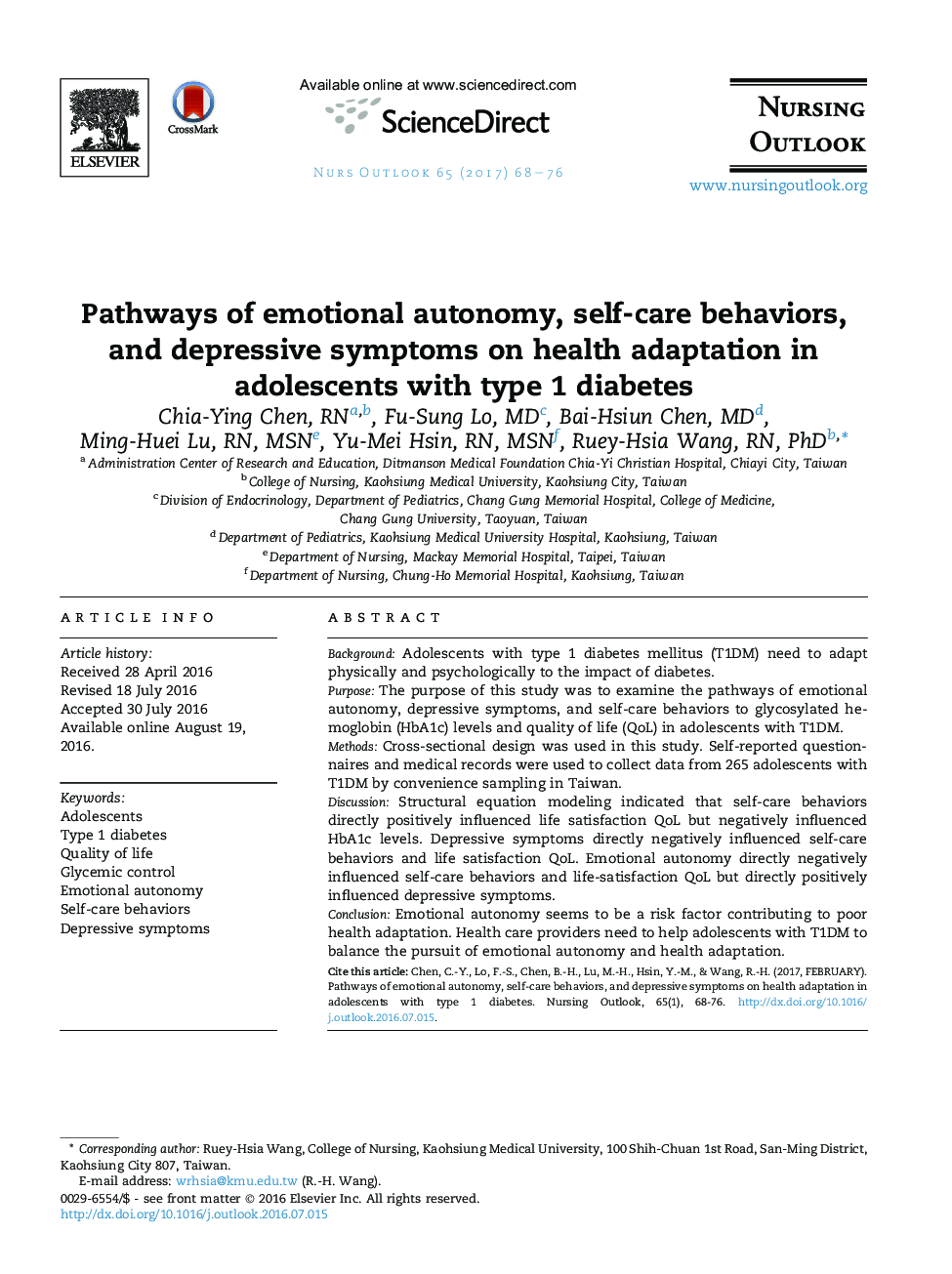| Article ID | Journal | Published Year | Pages | File Type |
|---|---|---|---|---|
| 5571207 | Nursing Outlook | 2017 | 9 Pages |
â¢Self-care behaviors are crucial to improve health adaptation in adolescents with type 1 diabetes.â¢Depressive symptoms directly negatively influenced self-care behaviors and life satisfaction quality of life (QoL).â¢Emotional autonomy directly negatively affected self-care behaviors and life satisfaction QoL.â¢Health care providers need to be aware the negative impact of emotional autonomy on health.
BackgroundAdolescents with type 1 diabetes mellitus (T1DM) need to adapt physically and psychologically to the impact of diabetes.PurposeThe purpose of this study was to examine the pathways of emotional autonomy, depressive symptoms, and self-care behaviors to glycosylated hemoglobin (HbA1c) levels and quality of life (QoL) in adolescents with T1DM.MethodsCross-sectional design was used in this study. Self-reported questionnaires and medical records were used to collect data from 265 adolescents with T1DM by convenience sampling in Taiwan.DiscussionStructural equation modeling indicated that self-care behaviors directly positively influenced life satisfaction QoL but negatively influenced HbA1c levels. Depressive symptoms directly negatively influenced self-care behaviors and life satisfaction QoL. Emotional autonomy directly negatively influenced self-care behaviors and life-satisfaction QoL but directly positively influenced depressive symptoms.ConclusionEmotional autonomy seems to be a risk factor contributing to poor health adaptation. Health care providers need to help adolescents with T1DM to balance the pursuit of emotional autonomy and health adaptation.
